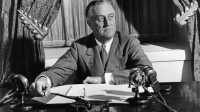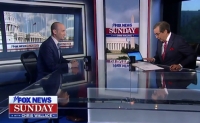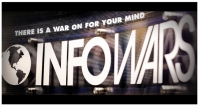
Michael J. Socolow
Associate Professor, Communication and Journalism, University of Maine
Michael J. Socolow is a media historian whose research centers upon America’s original radio networks in the 1920s and 1930s. His scholarship on media history has appeared in Journalism & Mass Communication Quarterly, The Journal of Broadcasting and Electronic Media, Technology & Culture, and other scholarly journals. He is the author of Six Minutes in Berlin: Broadcast Spectacle and Rowing Gold at the Nazi Olympics (Urbana: University of Illinois Press, 2016). He was awarded the 2018 Broadcast Historian Award by the Library of American Broadcasting Foundation and the Broadcast Education Association for Six Minutes in Berlin.
He is also a former broadcast journalist who has worked as an Assignment Editor for the Cable News Network and as an information manager for the host broadcast organization at the Barcelona, Atlanta, and Sydney Olympic Games. He has written pieces on media regulation and media history for Slate, Columbia Journalism Review, the Chronicle of Higher Education’s Chronicle Review, and other journalistic outlets. In the Department of Communication and Journalism, he serves as Internship Coordinator and teaches CMJ 211: Journalism Studies I, CMJ 237: Journalism Across Platforms, CMJ 380: Advertising, Media & Society, CMJ 489: Seminar in Media Ethics, CMJ 520: Media History, CMJ 525: Propaganda and Political Persuasion, and other courses.
For more on Professor Socolow’s scholarship check out his Google Scholar profile: https://scholar.google.com/citations?user=YxTJsxoAAAAJ&hl=en&oi=ao. He tweets at @michaelsocolow.
Good profits from bad news: How the Kennedy assassination helped make network TV news wealthy
Nov 21, 2023 04:02 am UTC| Politics
In journalism, bad news sells. If it bleeds, it leads is a famous industry catchphrase, which explains why violent crime, war and terrorism, and natural disasters are ubiquitous on TV news. The fact that journalists and...
Don't trust the news media? That's good
Mar 15, 2023 15:53 pm UTC| Insights & Views
Everyone seems to hate what they call the media. Attacking journalism even accurate and verified reporting provides a quick lift for politicians. Its not just Donald Trump. Trumps rival for the 2024 Republican...
Nov 13, 2021 07:48 am UTC| Sports
On the morning of Aug. 14, 1936, two NBC employees met for breakfast at a café in Berlin. Max Jordan and Bill Slater were discussing the Olympic Games they were broadcasting back to the United States and the Nazi...
May 20, 2020 15:21 pm UTC| Insights & Views
For centuries, what has made news valuable and news organizations profitable has been the speed at which journalists collect and disseminate information. This is useful for both commerce and public service. But the rush...

The first fireside chat calmed an anxious nation and provides a model for today
Mar 12, 2020 15:48 pm UTC| Politics
President Franklin D. Roosevelt and his advisers knew he had to do something. The U.S. banking system faced imminent collapse; depositors around the country waited anxiously in line to withdraw their funds. To stop the...

Misinformation, evasion and the informational problem of live TV interviews
Oct 02, 2019 02:59 am UTC| Insights & Views Business
First, it happened on Fox News. Chris Wallace asked White House adviser Stephen Miller about the presidents decision to use private lawyers to get information from the Ukrainian government rather than go through …...

Audiences love the anger: Alex Jones, or someone like him, will be back
Aug 08, 2018 11:31 am UTC| Insights & Views Politics
Confrontational characters spouting conspiracy theories and promoting fringe ideas have been with us since the invention of American broadcasting. First on radio, then on television, the American audience has consistently...
- Market Data



































